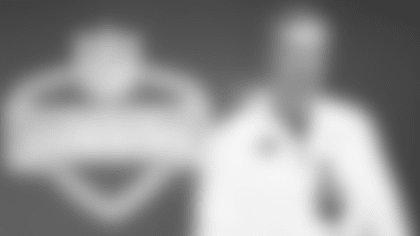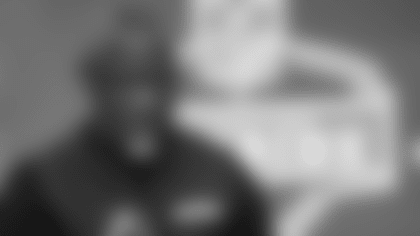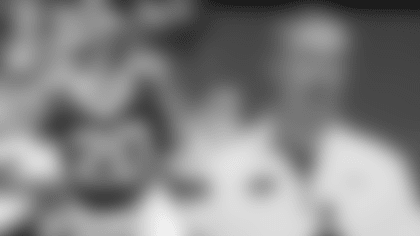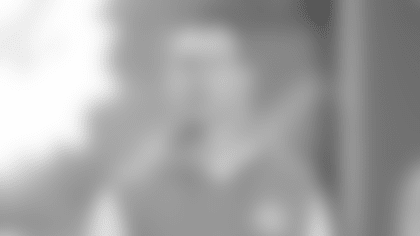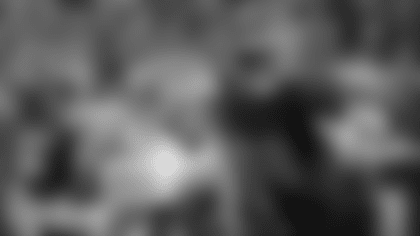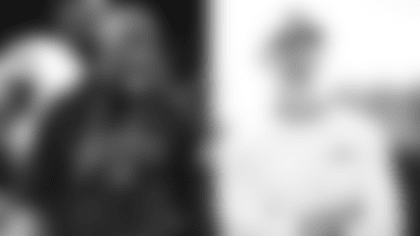Transcript of head coach Eric Mangini's news conference with the New York Jets media before Tuesday's afternoon training camp practice:
Yesterday there was some really good situational work at the end of practice. I really like the last part of practice a lot, just being able to throw a situation up on the scoreboard and see what happens. I think that's invaluable because it forces all the coaches to think, "OK, what do I have to do?" It forced the players to make a lot of decisions in terms of "How am I going to play this situation? What's important?" It's exactly like in games. The transition from one mode to the next mode happens so quickly and the ability to deal with those transitions and to make the right decisions in those situations is key to being able to successfully operate, either at the end of the game or the end of the half. I just think that's been really positive for us.
There were a couple of plays yesterday that were very similar to plays that hurt us last year during the course of the games. It was positive this morning to be able to show the play from practice, show the play from the game and explain to them, "OK, here's an area where we were pretty good last year, we've got to maintain this, and here's an area of weakness you can clearly see hurt us in the game – this isn't something I dreamed up in my office – here's what we have to do. This is why what we're practicing right now is so important."
In terms of today, we're in as much of a regular-week schedule as we can be except we cleaned up the tape and then we transitioned into what would be a normal Wednesday schedule. Tomorrow would be a normal Thursday and the next day would be a normal Friday, right on down the line to get into that mentality and to expose the new guys to the way we treat a typical week of practice and a typical week of meetings. It's also for the rookies, to get them to start thinking in terms of the opponent, not just their schemes, but the individual matchups, the game within the game, and have them start developing their in-season preparation routine. That routine is so important, one, because you want to have consistency, and two, because the more work you do and the better you get at that, the more the game slows down for everybody.
And with that I'll open it up to questions.
On which two plays occurred Monday …
One play was from Indianapolis. It was the deep over and the outside post. It wasn't exactly the same. The backside player ran a shallow cross, so he was low. We gained the backside corner against Indy. The play yesterday wasn't a shallow cross, it was a deep out. We lost the backside corner. But really, it's the free safety that gets beaten up by that over. The corner to the side of the post is expecting that free safety to be there. Now when the guy runs to the post, he disappears and it's usually a huge play.
The same thing that had happened to us when I was at New England against Buffalo with Eric Moulds, that's the same exact route as the one we practiced yesterday. They hit that one for 41 and a touchdown. The same thing happened in 2000 against Denver, had a slap formation. Otis [Smith] was on the backside. He came down on the tight end. They didn't hit the post this time, they hit the over. It's the same concept. It's three different opponents and really it hit all three times for big plays. You can tell they left scars [laughs].
On whether he can tell if Tom Brady will use that play in the season opener …
I can see it. Everybody's going to have to defend that. It's just a standard play. Norv Turner used to do it. He'd do it on a 3-by-1. He'd motion the fullback out and keep the frontside corner when he was at Miami. That was his way of doing the same concept. Same problem, different way of creating the problem.
On what he's seen from Laveranues Coles thus far …
He's been outstanding. The thing that I've liked the most about Laveranues is, he's a very good route runner, but he's really working on the tops of his routes to make everything look the same so the defensive back can't sit there and anticipate where he's going to break. With a guy that's that good at running routes, when you add that — [Brian] Schottenheimer calls it "pastry" — at the top, it makes it a lot more difficult. It's a last-second decision by the defensive back and it really puts a lot of pressure on him. He's done a good job of that. In OTAs he's really focused on it and it's carried over. I think that's been a great thing that he's doing.
On if he's seen improvement from Nick Mangold …
Nick's really good. I showed a clip of him today. It was the one-on-one drill. He was working against, I think, C.J. [Mosley] today, but Dwayne [Robertson], C.J. and a lot of different guys. And Nick has the ability to really react to those quicker guys, those quicker noses, and then also the ability to anchor and not give ground to the stouter noses. What I like is the way he sinks his hips and he's got really good hand placement, so as he comes back, he can strike, reload his hands and strike again. [He] constantly takes the pressure off – whether it's speed or power – with his hands and his base is so solid, it's almost shoulder width apart, which is exactly where you want it, so he's not punching it. With the wide base, when you punch, you can't transition if the guy changes directions. He does a really nice job with those elements. It's just sound fundamentals that he has.
On if his fundamentals come naturally or are coached …
They're definitely things that are coached. I get a lot of questions about Teddy [Atlas] and what type of role a boxing coach could have in football. I think that's a really good example of how hand placement comes into play, because there's a difference when you're snapping the jab off in boxing, it's a little bit different, but the concept is the same. The offensive linemen, they're still snapping what would be the equivalent of a jab but it's with two hands and it's the ability to strike, stop, stop the progress, reload and strike again.
With defensive linemen, it's no different — whoever has the inside hand placement is going to win. It's just physics. With the defensive backs, it's the receivers coming out to block them. They get their hands inside. They control them. If the DB gets their hand inside, he controls them. In the off-hand jam, it's a different type of movement, but it's still hand placement. Outside linebacker is the same thing. Sometimes it's hard to see exactly how it applies to football. But it applies at every position and that's why boxing has serious carryover.
On if he sees position flexibility in D'Brickashaw Ferguson and Mangold …
Brick has worked with both units, the first and second unit. I haven't moved Nick. I'm comfortable with his flexibility right where it is. I'm comfortable with that.
On the comparisons between camps this year and last year …
In terms of fatigue, I think any time you get to this point in camp, you're fatigued and everybody around the league is fatigued. It's long weeks, long days, long meetings — that's just kind of the nature of this time of year. In terms of comparisons, I'd say that it's different in the sense that you're teaching at a different level, because you're not focused as much on the core things — terminology, base formations, base adjustments, base route conversions. You've got a body of work there. You've got a group of plays there. You've got another session of OTAs to build on and teach off of. So that's been positive.
But there also is the element of the new things that you add in. That's going to happen every year, where there are new plays, new defenses, new coaches, and with those new coaches come new ideas and new groups of players. So that's just part of the process and with the normal turnover, the way it is, it's just something you always go through in the normal evolution of the playbook, it's something you always go through.
On how he feels Jacob Bender is adjusting to the Jets' system …
I think any time you come from a completely different system, there's that element of being a rookie and all of those things. But each guy who comes here, the system that they played in is usually pretty different than what we play here. Defensively, I'd say if you got someone from Virginia, there's a lot of carryover from that program. But most programs, it's very different. Offensively, some teams are going to be so heavily "run" that that's where the emphasis is.
But now we've had quite a bit of time, and with Jacob, what I like is he's very bright, very motivated, he's got a high motor, he's got good toughness, he's very active in the meetings, he's active on the field. There's no sense of "I came from a smaller program, I'm going to stick my toe in the water and see if I can make it here." He jumped in with both feet and he's really attacked the information, which is how we saw him coming out and I'm pleased with that approach. There's definitely a learning curve with all those guys and systems. Various systems create that anyway with most of the rookie class.
On if he is happy to see bad weather …
I was happy to see the weather. I was happy to see the weather the other night when it was sprinkling. I think it's great. Cold, hot, snow, wind, rain, hail, whatever it is, noise. The more distractions you have, the tougher it is. The more pressure that the group can be under collectively, that's important, because it's all going to be there. You don't know when it's going to be there but it's going to be there and we're going to have to put those things out of our minds and focus on what's important, which is execution. You try so hard to always simulate situations and the elements of the situation that you really have no control over.
On his thoughts about the Michael Vick case …
I think it's obviously unfortunate for everybody involved. You never want to see anything like this take place anywhere, especially in the industry that you're in. It's difficult and unfortunate and those are really my thoughts on it. I'm focusing primarily on the positive things here.
On David Bowens making the decision to come to the Jets …
I think he probably just really enjoyed the visit. [There are] a lot of charming people in the building. He likes spending time with Mike [Tannenbaum] and me [smiles]. You'd have to ask him. I really believe that whenever the free agents come in, we try to explain exactly what we believe in philosophically, exactly the vision of the organization, the vision of the team, and be very honest with expectations so that there's no uncertainty when a player signs. We ask for the same thing in return, the same type of honesty about expectations and what they're looking for. You try to find out through that whole process whether or not the relationship is a good relationship. Both sides make a decision to move forward.
On if he's ever had a player during the recruitment process decide his program is too difficult …
No. That hasn't happened. I'm sure maybe that's been thought. But kind of like when you get that comment, "Let's just be friends. It's not you, it's me."



